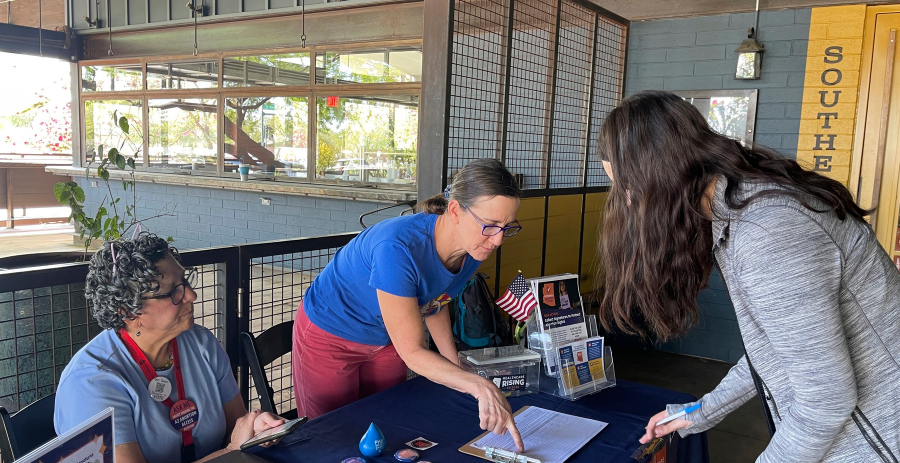2024 Election News
Prop. 134 Secures $400K in Funding as Opponent Sounds Alarm on Future Initiatives

A significant fundraising initiative is currently underway for a proposed ballot measure in Arizona aimed at reforming the state’s voter initiative process.
Prop 134, known as the Distribution Requirement for Initiatives Amendment, has garnered over $400,000 in support as indicated by recent campaign finance reports for the third quarter.
This figure positions Prop 134 among the top fundraising ballot measures in Arizona, trailing only the Arizona Abortion Access Act, which raised over $700,000, and Prop 312, concerning property tax refunds, which received $500,000.
The proposed changes would mandate that signature thresholds be met in all 30 legislative districts, rather than just statewide, to qualify for the ballot. Currently, to change a state statute, initiatives require signatures from 10% of voters from the last gubernatorial election, while constitutional amendments necessitate a 15% threshold. Prop 134 aims for these constitutional amendments to meet the same 15% requirement across all districts.
A major source of funding for the measure comes from the political action committee Make Every Voice Heard, which contributed $210,000 in late September and an additional $197,000 in late August.
The committee’s chairman, Philip Bashaw, argues that this measure fosters equity in the signature collection process by encouraging outreach beyond Maricopa County.
“This aligns with the essence of the citizen initiative process,” Bashaw stated. “It ensures that all voices across Arizona are heard in the voting process.”
In stark contrast, financial support against Prop 134 has been minimal, totaling around $20,000 from various local companies.
Opponents, including the Arizona Public Health Association, contend that this proposal would hinder efforts to place health-related initiatives on the ballot. Director Will Humble has characterized Prop 134 as an “existential threat” to future voter initiatives, citing concerns that significant public health measures would be sidelined.
Humble referenced the Smoke-Free Arizona Act, a successful initiative from 2006, to illustrate how the proposed requirements could stymie similar efforts. He expressed concern that if Prop 134 passes, opportunities for future voter initiatives might be severely compromised.
As noted by the National Conference of State Legislatures, 24 states allow for citizen initiatives with various geographic stipulations. However, the strict conditions proposed in Arizona stand out, as they typically do not impose as rigorous thresholds.
For instance, Massachusetts and Michigan have less demanding requirements based on signature collection from specific regions. Colorado and Utah also include legislative district criteria with lower thresholds than those proposed in Prop 134.
Critics are also worried that Prop 134 could provide disproportionate power to a single legislative district, creating a potential veto over statewide initiatives. However, supporters, including the Arizona Chamber of Commerce and Industry, dispute this claim. CEO Danny Seiden described the veto concern as “ridiculous,” explaining that legislative districts are designed to have roughly equal populations.
Each district encompasses about 230,000 to 240,000 residents, which would mean roughly 200,000 votes against an initiative would be required to block it under the new measure. “If an idea is that bad to lose 200,000 supporters, it shouldn’t be on the ballot,” Seiden concluded.






![Members of the Arizona House of Representatives vote during a third reading of nearly three dozen bills at the Arizona State Capitol on March 4, 2025. [Monica D. Spencer]](https://arizonanews.org/wp-content/uploads/2025/06/SR-347-Secures-53M-in-Third-State-Budget-Draft-Awaiting-400x240.jpg)
![Members of the Arizona House of Representatives vote during a third reading of nearly three dozen bills at the Arizona State Capitol on March 4, 2025. [Monica D. Spencer]](https://arizonanews.org/wp-content/uploads/2025/06/SR-347-Secures-53M-in-Third-State-Budget-Draft-Awaiting-80x80.jpg)










